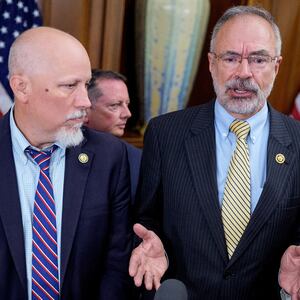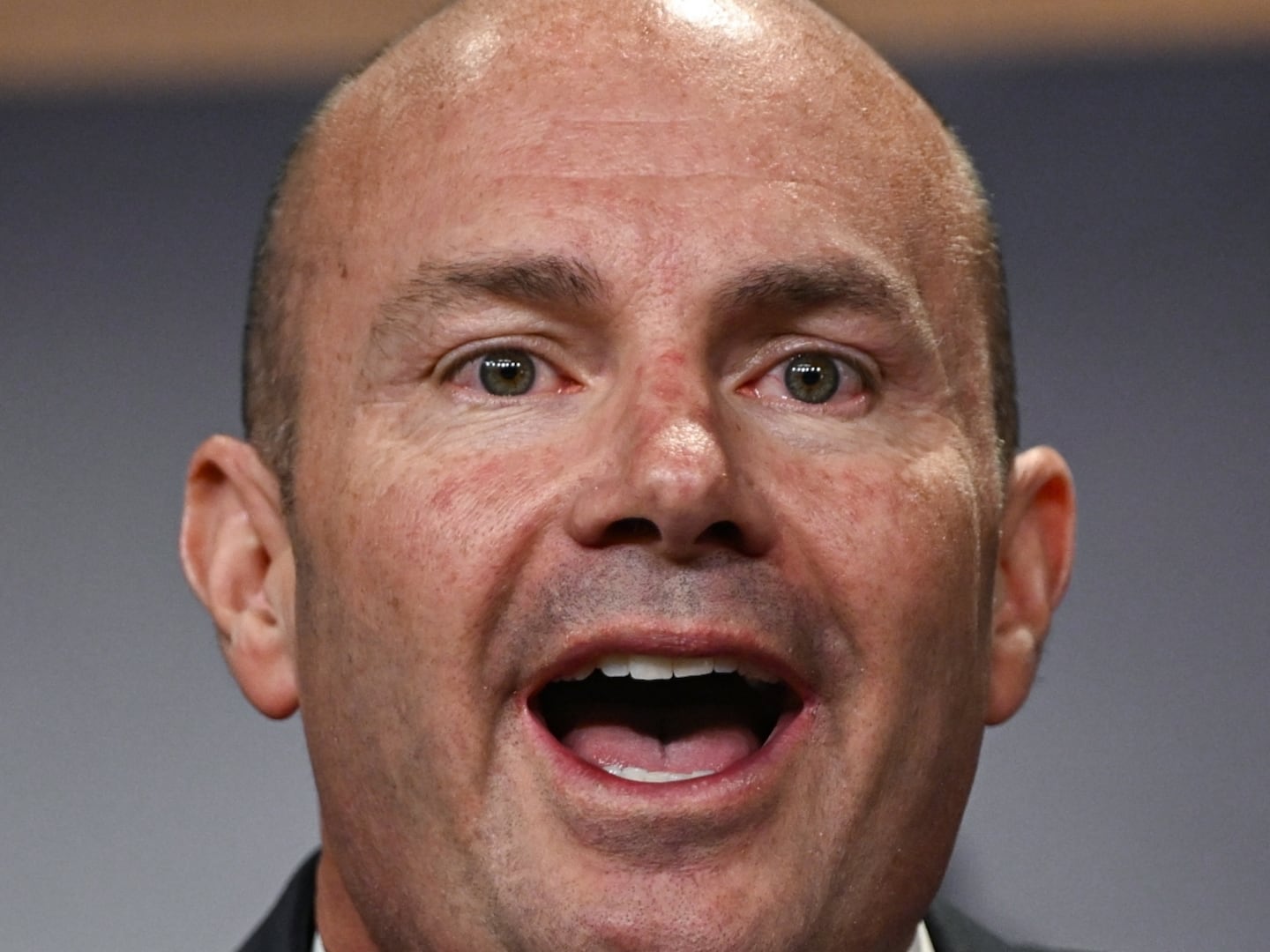House Republicans voted to pass Donald Trump‘s “big, beautiful” bill early Thursday, giving the president and House Speaker Mike Johnson a major legislative victory on their domestic spending and border agenda.
The vote came down 215 to 214 as GOP members fell in line after weeks of grandstanding and negotiations to get it across the House finish line. It now faces a whole new set of hurdles in the Senate.
Johnson had his hands full with rowdy Republican lawmakers over the last few days and through the weekend as they showed up at his office for marathon series of sit-downs to demand changes to the legislation in return for their “yes” votes.
ADVERTISEMENT
The speaker had little room for error as Republicans hold a narrow 220 seat majority. It would only have taken a few more GOP “no” votes to torpedo the bill as Democrats all remained united against it.
Republican Reps. Thomas Massie of Kentucky and Warren Davidson of Ohio voted against the bill, while Rep. Andy Harris of Maryland voted “present,” which would have helped kill the bill if the vote had been tied.
Two Republicans who had planned to vote in favor of the bill missed the vote, Johnson told reporters afterward. Andrew Garbarino of New York fell asleep in his office after the all-night session, while David Schweikert of Arizona slipped his electronic voting card into place after the voting had ended, Johnson said.
“The House has passed generational, truly nation-shaping legislation,” Johnson said.
Trump went even further in a social media post that praised Johnson and called the bill the most consequential legislation in American history.
“‘THE ONE, BIG, BEAUTIFUL BILL’ has PASSED the House of Representatives!” Trump wrote in a post on Truth Social. “This is arguably the most significant piece of Legislation that will ever be signed in the History of our Country!”

He urged the Senate to take up the bill “AS SOON AS POSSIBLE” and warned Democratic lawmakers not to interfere.
“They have forgotten their landslide loss in the Presidential Election, and are warped in the past, hoping someday to revive Open Borders for the World’s criminals to be able to pour into our Country, men to be able to play in women’s sports, and transgender for everybody,” he wrote. “They don’t realize that these things, and so many more like them, will NEVER AGAIN happen!”
Johnson had previously suggested there could be a vote as early as Wednesday and maintained optimism throughout the day, but he faced eleventh-hour roadblocks as the House Freedom Caucus said they were not ready to support the bill and rushed back to the White House for a second time in two days to hash things out.
In the end, the speaker got what he was pushing for: a vote in the House before lawmakers head out for the Memorial Day weekend.

The Republican holdouts had previously blasted the bill for increasing the deficit.
The nonpartisan Committee for a Responsible Federal Budget has said the bill is shaping up to add about $3.3 trillion to the federal deficit over the next decade—a number that could increase to $5.2 trillion if the bill’s temporary provisions are made permanent.
The White House has insisted that the bill would not add to the deficit.
“Now that’s a joke,” Massie, a MAGA Republican who represents northeastern Kentucky, told CNN’s Manu Raju earlier this week, drawing the president’s ire.
Davidson wrote in a social media post early Thursday morning, “While I love many things in the bill, promising someone else will cut spending in the future does not cut spending. Deficits do matter and this bill grows them now.”
Massie posted to say he agrees with Davidson. “If we were serious, we’d be cutting spending now, instead of promising to cut spending years from now,” Massie wrote.
Both hard-line and moderate lawmakers used the tight margins in the House to their advantage to leverage tweaks to the final legislation ranging from reforms to Medicaid, rolling back clean energy tax credits and other tax provisions.
Among the revisions revealed late Wednesday were speeding up the implementation of Medicaid work requirements to the end of 2026 rather than January 2029—a move to appease right-wing members. It also increased the state and local tax (SALT) deduction cap to $40,000 for individuals making $500,000 or less, a provision pushed by moderates.
The bill would extend the tax provisions set to expire in Trump‘s tax law passed in 2017 during his first term while also creating several new tax deductions.
It would also include exemptions for tips and overtime pay, which the president pitched on the campaign trail, but the deductions would only run only through 2028.
As GOP lawmakers looked to cut spending, they added a series of major reforms to Medicaid, which is expected to lead to millions of people losing their insurance coverage.
Some of the changes include states having to impose work requirements and shortening the enrollment period for the Affordable Care Act. The provisions were part of the portion of the bill drafted by the House Energy and Commerce Committee, which was tasked with finding more than $800 billion in savings over a decade.
The legislation also tightens eligibility requirements for the Supplemental Nutrition Assistance Program (SNAP) program and shifts a portion of the benefit costs to states.

It also includes $350 billion in new spending on national defense and border security.
The bill also would raise the debt limit by $4 trillion, averting a devastating default on the U.S. debt if Congress did not act by this summer.
No Democrats voted for the bill, blasting it as a massive giveaway to billionaires on the backs of vulnerable American families.
As Republicans huddled behind closed doors to negotiate on Wednesday, Democrats rallied against it, warning of cuts to Medicaid and food assistance.
When the bill heads to the Senate it will face another round of hurdles. GOP senators have raise issues with the House version’s Medicaid provisions, tax cuts expiring and impact on the deficit.
Republican leaders do not expect the legislation to remain in its current form in the Senate—as is common with legislation of this type—but it‘s hard to see where the party reaches consensus as the president pushes them toward the finish line.








